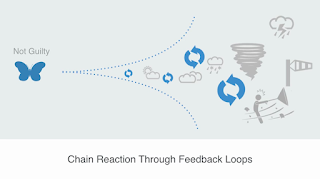CYBER ATTACKS, CYBER ETHICS
A crippling ransomware attack on one of the
largest fuel distribution networks in the US has brought into sharp focus the
cyber threats facing infrastructure of national importance. The taking of the
Colonial Pipeline brought the authorities’ worst fears to life. The ransomware
attack disabled the 5,500-mile network, causing fuel shortages in the
south-eastern states of the US and prompting the Biden administration to declare
a state of emergency. Although the Colonial Pipeline Company’s CEO, Joseph
Blount, controversially paid the $4.4m (£3.2m) ransom, the network was out of
action for a week.
Let’s talk about automation. We can observe
that more ‘crucial systems of strategic importance’ in our industry such as
marine storage terminals, refineries, chemical production and distribution
sectors are being maximally automated. This increases the risk of
cyber-attacks. Therefore, our course on Cyberethics is valuable for those who
are perhaps not fully aware of human actions in Artificial Intelligence,
Robots, Algorithms, Cyber Crime & Security.
Learning about how those technologies
impact our business and lives, individually and globally, is essential for all
those managing and operating our local and global energy and transport
infrastructure. What are the risks we need to be vigilant about? It implies
both many positive impacts and outputs from new technologies but also specific
and global risks that we need to anticipate. Not all automation is moral and
ethical. Decision making based on the artificially produced conclusions needs
human contemplation, because inevitably dilemmas will occur.
The cyberspace permeates all dimensions of
our contemporary life. It influences the way we travel, the way we remain in
connection with others, communicate and harvest information, and ultimately how
we organise and run our business. Who are we as humans amidst the cyberspace?
Our online course addresses the salient
ethical questions in relation to security, technologies and artificial
intelligence, freedom and responsible citizenship in economics and day-to-day
business. The units include reading and study material of high actuality.
Participants will benefit from full and free access to the Globethics.net
online library with a plethora of publications in several collection areas of
applied ethics. The course is based on the publication Cyber Ethics 4.0:
Serving Humanity with Values written by Christoph Stückelberger and Pavan
Duggal, and will be lectured by two high profiled and experienced course
instructors. It will help our participants to:
• Recognise the
main ethical aspects in cyber environment
• Apply ethics,
core values to all decisions that are made within cyber space
• Analyse cyber space
management approaches and models from the ethical perspective
• Create new
principles of behaviour in cyber space that meet global ethical principles and rules.
Our industries are ‘complex’ systems of
business. Automating them may be attractive, because many believe that if an
algorithm is handling things, no human error can be expected. However, it is
wise to understand that human beings write code and AI copies human behaviour.
AI can’t be programmed to self-reflect and does not automatically ask this
simple question: is it right or wrong? Without cyber ethics our industry
remains vulnerable.
Those interested in learning more about
this training course should contact Arend van Campen, founder of
TankTerminalTraining, at arendvc@tankterminaltraining.com. More information on
the company’s activities can be found at www.tankterminaltraining.com.




Reacties
Een reactie posten